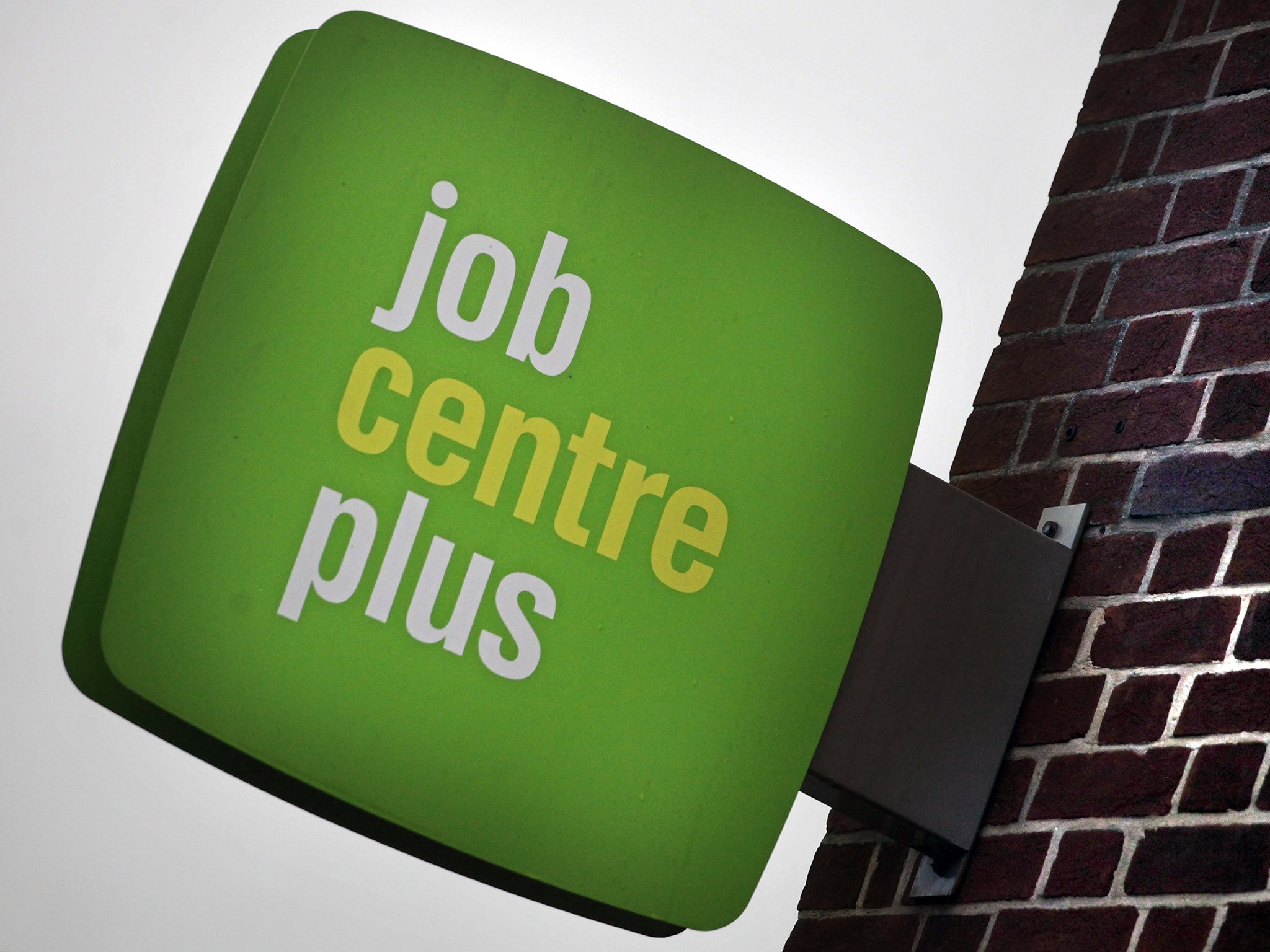Government accused of forcing unemployed into 'financial black hole' under new benefits rules
Newly unemployed will have to wait a full week before claiming JSA

Your support helps us to tell the story
From reproductive rights to climate change to Big Tech, The Independent is on the ground when the story is developing. Whether it's investigating the financials of Elon Musk's pro-Trump PAC or producing our latest documentary, 'The A Word', which shines a light on the American women fighting for reproductive rights, we know how important it is to parse out the facts from the messaging.
At such a critical moment in US history, we need reporters on the ground. Your donation allows us to keep sending journalists to speak to both sides of the story.
The Independent is trusted by Americans across the entire political spectrum. And unlike many other quality news outlets, we choose not to lock Americans out of our reporting and analysis with paywalls. We believe quality journalism should be available to everyone, paid for by those who can afford it.
Your support makes all the difference.Ministers have been accused of pushing nearly 300,000 people into the clutches of payday lenders when changes to benefit rules come into force next week.
George Osborne announced last year that the newly unemployed would have to wait a full week before making a claim rather than the current three days. The move will trim about £50m from welfare spending next year.
An impact assessment of the policy by the Government’s social security advisory committee says some 280,000 new recipients of Jobseekers’ Allowance (JSA) and Employment and Support Allowance (ESA) will bear the brunt of the cuts.
It said: “The number of new claimants likely to be most at risk of suffering financial hardship are around 245,000 in JSA and 35,000 in ESA.” It calculated that JSA claimants would lose around £40 each and ESA claimants around £50 each.
The former Labour minister Frank Field, who has acted as the Coalition’s anti-poverty adviser, said: “By making people wait a week before they can make a claim and then having them wait weeks, if not months, for their first payment to arrive, the Government is pushing a quarter of a million poor people towards a financial black hole.
“The only option left for those being pushed over the edge is to fall prey to the payday lenders. Does the Government intend now to be the recruiting sergeant for the pay day lending industry? How else will people manage to put food on the table with no money coming in?”
Announcing the policy in last year’s spending review, Mr Osborne explained: “Those first seven days should be spent looking for work and not looking to sign on.”
The Chief Secretary to the Treasury, Danny Alexander, said that extending the waiting period would bring Britain closer into line with other countries. He also argued that the move would help to make Job Centres more efficient.
But critics have warned that the delay could increase the hardship for families already struggling to make ends meet.
A spokesman for the Joseph Rowntree Foundation said: “Some people who lose their jobs will have access to resources and money that means they don't necessarily need to claim and will get back into work again quickly. However, for many the relatively small amounts on offer are a lifeline and waiting longer to receive this could push them into hardship, compounding their problems and making it harder to get back to work, not easier as policy intends.”
A Department for Work and Pensions spokesperson said: “We continue to spend over £4bn a year on the main unemployment benefit to support jobseekers meet their basic needs while they look for work.
“Now by extending the waiting period for this benefit by four days, we can use taxpayers’ money to fund even more initiatives to help the very hardest to help claimants get into work. This includes those who are homeless or are managing chaotic lives and addiction, or those returning to work from a period of illness - so they can have the same opportunity to benefit from a regular wage as everyone else.”
New claimants who find themselves in financial trouble can apply for an advance which is later deducted from their benefit payments. However, about two thirds of applications for short-term loans last year were turned down.
Join our commenting forum
Join thought-provoking conversations, follow other Independent readers and see their replies
Comments